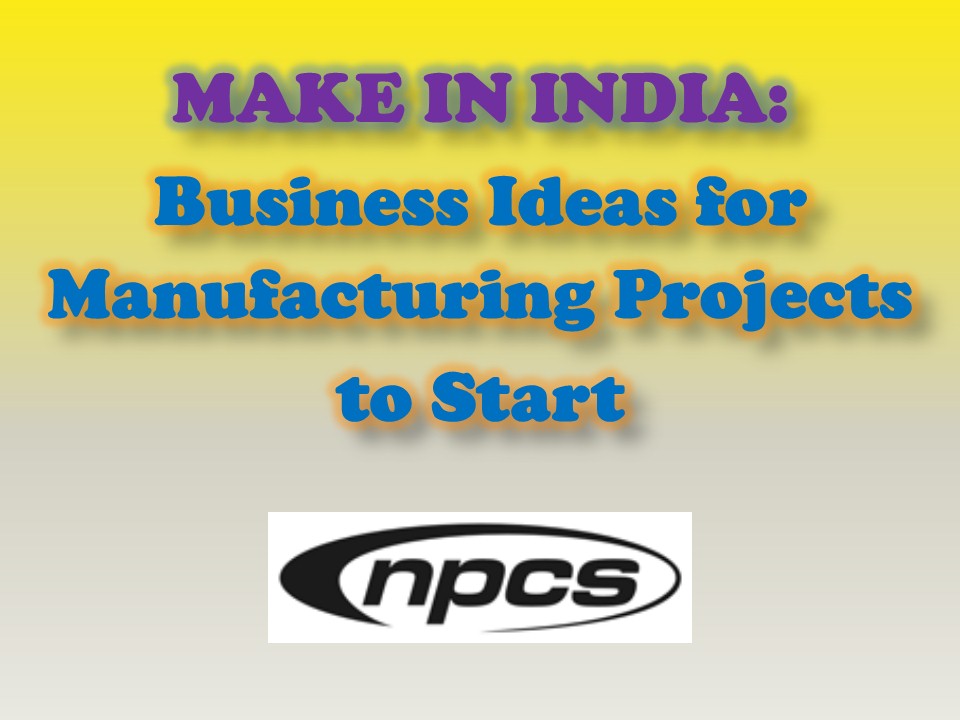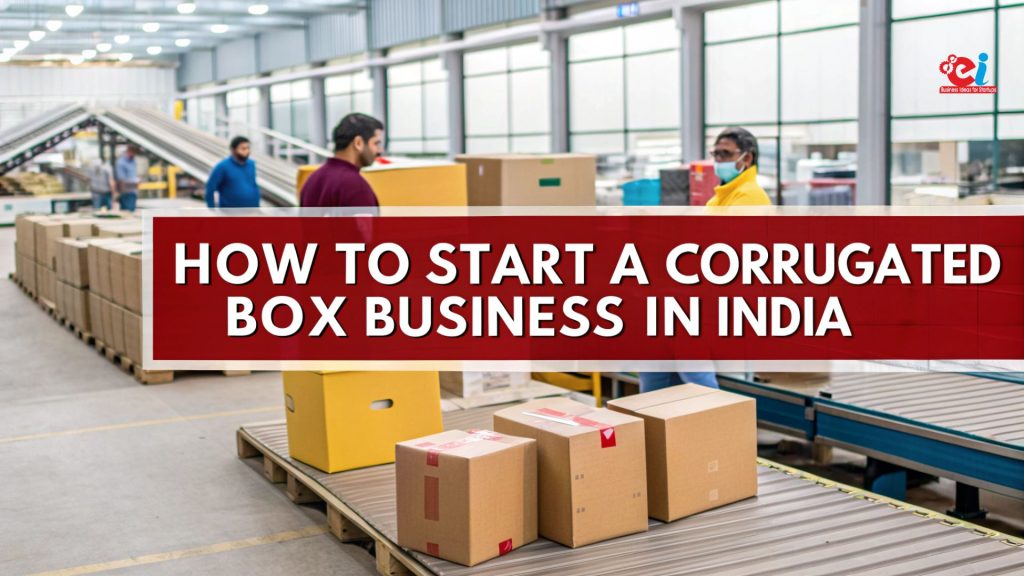
India is rapidly transforming into a global hub for manufacturing. With supportive policies, improved infrastructure, and rising domestic demand, the ecosystem continues to evolve. Entrepreneurs can leverage this opportunity by identifying niche yet scalable ventures. By aligning with national initiatives, they can contribute to economic growth and generate employment.
Why the “Make in India” Movement Fuels Manufacturing Growth
The “Make in India” campaign, launched in 2014, has played a crucial role in encouraging local manufacturing. It aims to reduce import dependency and boost indigenous production. As a result, investors are shifting their focus toward domestic capabilities. Many industries have responded positively, embracing this opportunity for value creation. Moreover, with government schemes like PLI (Production Linked Incentive), the support has only intensified. For startups, this initiative offers a competitive advantage if tapped wisely.
See Also : Architects Directory
Electronics and Electrical Components
Electronics manufacturing is among the fastest-growing sectors. India aims to become a major player in producing smartphones, LED lights, and components. Under the Make in India initiative, many global brands have set up facilities across India. Entrepreneurs can explore segments like:
-
Mobile charger units
-
Printed circuit boards (PCBs)
-
LED light manufacturing
-
Switchgear and power accessories
With rising digital adoption and increasing exports, this domain offers long-term potential.
Food Processing Units
India is the second-largest producer of fruits and vegetables. However, only a fraction is processed. This gap provides immense scope for food processing businesses. Startups can consider units for:
-
Fruit juice and pulp
-
Ready-to-eat foods
-
Frozen vegetables and snacks
-
Dehydrated spice powders
Such industries enjoy subsidies and tax benefits under the Make in India initiative. Additionally, processed foods have growing demand both locally and internationally.
Textile and Garment Units
The textile sector holds historic importance in Indian trade. Today, it remains a labor-intensive, high-export industry. Aspiring entrepreneurs can start manufacturing:
-
Cotton garments
-
Woolen wear
-
Denim products
-
Fashion accessories
With global interest in “sustainable fashion,” natural fabrics and organic dyes are gaining traction. Further, the government supports textile parks and integrated clusters to encourage MSMEs.
Herbal and Ayurvedic Products
India is known for its rich heritage in Ayurveda and herbal remedies. With wellness trends rising globally, herbal manufacturing offers promising business opportunities. Entrepreneurs may explore:
-
Herbal cosmetics
-
Ayurvedic syrups and capsules
-
Natural oils and balms
-
Plant-based soaps
As the Make in India mission promotes traditional industries, many herbal product manufacturers now export to major markets like the US and Europe.
Packaging and Disposable Products
With increasing consumption and retail activity, the need for hygienic packaging has surged. Starting a unit in the packaging segment can be very profitable. Popular options include:
-
Corrugated boxes
-
PET bottles and jars
-
Aluminium foil packaging
-
Disposable paper plates and cups
Furthermore, eco-friendly disposables made from leaves and bagasse are in high demand. These alternatives align well with the sustainability focus under the Make in India roadmap.
Automobile and Auto Components
India is one of the largest automotive markets. Auto components manufacturing has tremendous scope, especially with the focus on electric vehicles (EVs). Entrepreneurs can establish ventures to produce:
-
Battery packs and chargers
-
Brake pads and discs
-
Plastic interiors and trims
-
Sheet metal components
Owing to localization goals, major automotive players now seek local suppliers. This makes it easier for smaller players to enter the value chain.
Furniture and Wood Products
Urbanization has led to growing demand for modern furniture and interiors. Setting up a wood product manufacturing unit can yield high returns. Potential products include:
-
Modular kitchens
-
Office furniture
-
School desks and chairs
-
Custom wardrobe systems
Moreover, the Make in India focus has boosted local craftsmanship and design innovation. Thus, entrepreneurs can combine tradition with technology to meet market needs.
Renewable Energy Components
With India’s commitment to reducing carbon emissions, renewable energy is a vital sector. Manufacturing components for solar and wind energy solutions is a forward-looking business idea. These include:
-
Solar panels
-
Inverters and charge controllers
-
Mounting structures
-
Wind turbine blades
Notably, the government has introduced incentives for domestic solar manufacturers. Therefore, this space offers scalability with environmental impact.
Sanitary and Hygiene Products
Hygiene and personal care items have seen increased demand post-pandemic. Small-scale units can manufacture products like:
-
Sanitary pads
-
Baby diapers
-
Hand sanitizers
-
Antiseptic wipes
These essentials are consumed daily, ensuring a stable market. Under Make in India, entrepreneurs receive support to scale such healthcare-focused manufacturing.
Plastic and Polymer Processing
Despite sustainability concerns, plastics continue to serve multiple sectors, including packaging, agriculture, and automotive. By adopting recycling methods and biodegradable solutions, businesses can still succeed. Consider manufacturing:
-
Injection molded items
-
HDPE and LDPE bags
-
Plastic crates and bins
-
Thermoformed trays
When equipped with updated technology, these units ensure low operational costs and steady output.
Stationery and Office Supplies
Stationery products are widely used across schools, offices, and institutions. Although simple, they present profitable manufacturing options. Potential items include:
-
Notebooks and diaries
-
Ballpoint pens
-
Files and folders
-
Ink cartridges
Domestic production of such items reduces imports and aligns perfectly with the Make in India vision. The initial setup cost is relatively low, making it ideal for new entrepreneurs.
Building Materials and Construction Supplies
India’s infrastructure growth drives the need for construction materials. Manufacturing such products ensures year-round demand. Some high-potential categories are:
-
Cement bricks and blocks
-
Steel door and window frames
-
Roofing sheets
-
Ready-mix plaster
Urban development and housing schemes have opened up vast markets. Startups that cater to affordable housing materials may gain faster traction.
Medical Devices and Equipment
Healthcare infrastructure in India is expanding. To reduce reliance on imports, local manufacturing of medical devices is promoted under the Make in India plan. Viable product ideas include:
-
Diagnostic kits
-
Surgical gloves
-
Syringes
-
Hospital furniture
Compliance with safety and quality norms is essential. Nonetheless, the profit margins and export potential are substantial in this sector.
Leather and Footwear Manufacturing
Leather goods and footwear form an export-oriented industry. India has abundant raw materials and skilled labor. Entrepreneurs may establish plants for:
-
Leather belts and wallets
-
Formal shoes
-
Sandals and slippers
-
Travel bags
The government provides common facility centers and design support to new entrants. Thus, even small firms can create global-standard products.
Toys and Educational Products
India seeks to become a toy manufacturing hub. With rising parental focus on learning tools, startups can produce:
-
Wooden and soft toys
-
Board games
-
Puzzle kits
-
Montessori tools
Toy manufacturing aligns with the Atmanirbhar Bharat and Make in India programs. As international brands shift sourcing to India, opportunities continue to grow.
See Also : Indian SME Directory
Conclusion
The Make in India initiative has unleashed manufacturing potential across diverse sectors. Whether it’s electronics, food, healthcare, or packaging, each area offers scope for profitable ventures. By identifying gaps, investing in quality processes, and staying compliant with regulations, entrepreneurs can build sustainable businesses. The future belongs to those who act early, innovate constantly, and manufacture locally with a global mindset. With continuous reforms and rising domestic demand, this is the right time to explore Make in India manufacturing ideas. Through small beginnings and focused execution, one can build a thriving enterprise and contribute meaningfully to India’s growth story.





